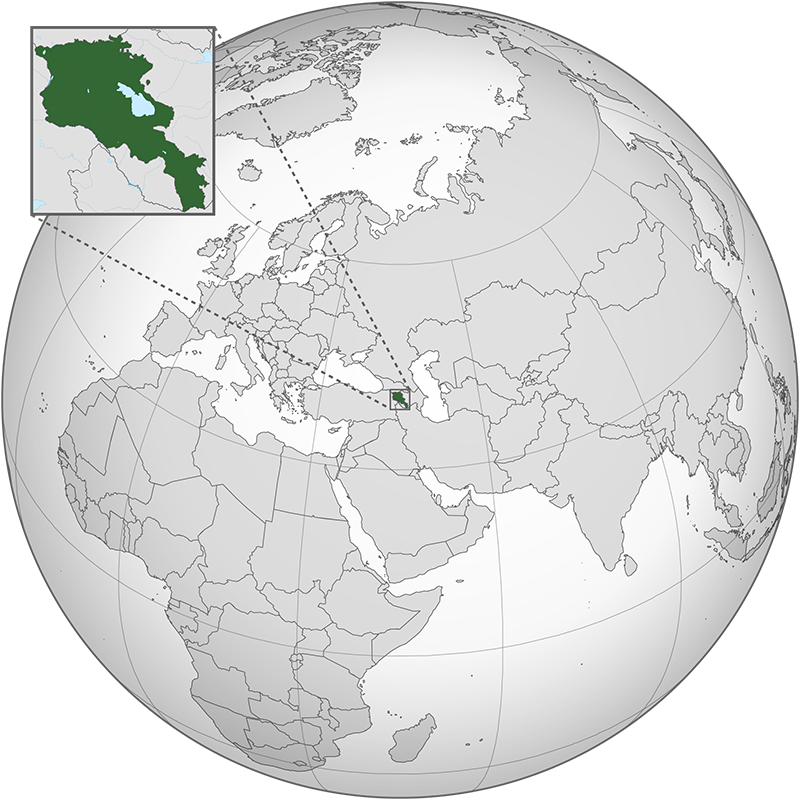
- Population:
- 2,974,000
- Religion:
- Christianity
One of the world's oldest nations, Armenia's history dates back to the 6th century BCE with the establishment of the Kingdom of Urartu. It became the first nation to adopt Christianity as a state religion in 301 CE. Over centuries, Armenia faced invasions by Romans, Persians, Arabs, and Ottomans. The early 20th century was marked by the Armenian Genocide during World War I. In 1991, following the dissolution of the Soviet Union, Armenia declared independence, establishing the modern Republic of Armenia.
Armenia, officially the Republic of Armenia, is a landlocked country located in the South Caucasus region of Eurasia. It is bordered by Turkey to the west, Georgia to the north, Azerbaijan to the east, and Iran to the south. Covering an area of 29,743 square kilometers, Armenia has a population of approximately 3 million people. The capital and largest city is Yerevan. The official language is Armenian, and the country has a rich cultural heritage, being one of the earliest Christian civilizations. Armenia operates as a unitary, multiparty, democratic nation-state with an ancient cultural heritage. The economy is primarily based on industrial sectors such as mining, agriculture, and information technology. Armenia is a member of international organizations like the United Nations, the Council of Europe, and the Eurasian Economic Union.






